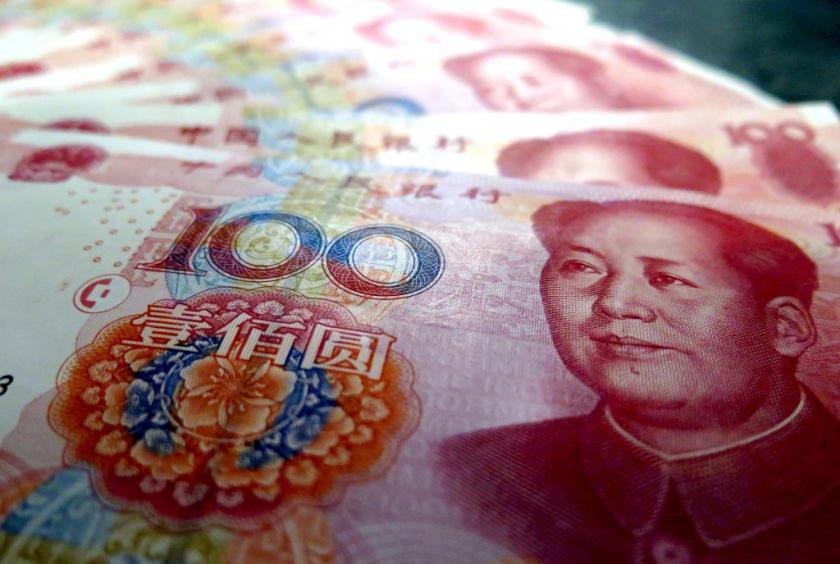TAIPEI (CNA for China Post/ANN) — Chinese yuan deposits held by banks operating in Taiwan fell to the lowest level in 56 months at the end of January amid worries over a slowdown in the Chinese economy, according to the central bank.
Data compiled by the central bank showed the balance of yuan deposits at banks in Taiwan, including negotiable certificates of deposit (NCDs), totaled 290.26 billion yuan (US$43.13 billion) at the end of January, down 8.18 billion yuan or 2.74 percent from a month earlier.
The January figure was the lowest since May 2014, when yuan deposits held by Taiwanese banks stood at 290.08 billion yuan. Moreover, it was the fourth consecutive month yuan deposits have fallen in Taiwan.
Chen Wan-ning, a specialist in the central bank’s Foreign Exchange Department, said China’s weakening economy has turned more and more investors away from the Chinese currency.
China’s gross domestic product (GDP) grew 6.6 percent in 2018, the slowest year-on-year growth since 1990. The Economic Information Daily, a newspaper run by China’s official Xinhua news agency, even forecast that GDP growth will moderate further to 6.1 percent in the first quarter of this year.
In February 2013, when cross-strait financial exchanges were on the rise under the then-Kuomintang government, the central bank lifted its ban on the domestic banking units (DBUs) of local banks conducting yuan-denominated transactions, including yuan deposits.
Before the ban was lifted, only the offshore banking units (OBUs) of Taiwanese banks were allowed to accept yuan deposits or conduct other yuan transactions. In June 2015, the balance of yuan deposits at banks in Taiwan hit an all-time high of 338.22 billion yuan.
At the end of January, yuan deposits in DBUs fell from 264.47 billion yuan a month earlier to 257.56 billion, while the balance of OBUs also dropped from 33.97 billion to 32.71 billion, the central bank said.
In addition to the worries over the Chinese economy, the second largest in the world, the fall in yuan deposits also reflected a move by Taiwanese electronics firms which operate production lines on the mainland to channel their Chinese currency to pay their employees year-end bonuses before the Lunar New Year holiday in February.
Meanwhile, yuan-denominated remittances in January totaled 140.02 billion yuan, up 7.3 percent from a month earlier, with remittances through DBUs totaling 85.53 billion yuan, up 15.68 billion yuan and via OBUs 54.39 billion, down from 60.55 billion yuan, according to the central bank.
Chen said the higher yuan remittances resulted from fund movement by local electronics firms to pay for purchases, while life insurance and securities houses also wired yuan for investment purposes.
According to the central bank, standard Charted Bank offered 3.5 percent on one-year yuan deposits in January, Jih Sun International Bank offered 3.1 percent on nine-month deposits, and Taipei Fubon Commercial Bank offered 3.1 percent on six-month deposits, the highest rates among local banks.
Jih Sun Bank offered interest of 3.1 percent on three-month yuan deposits and CTBC Bank paid interest of 2.86 percent on one-month yuan time deposits, the highest for those products during the month, the central bank said.










